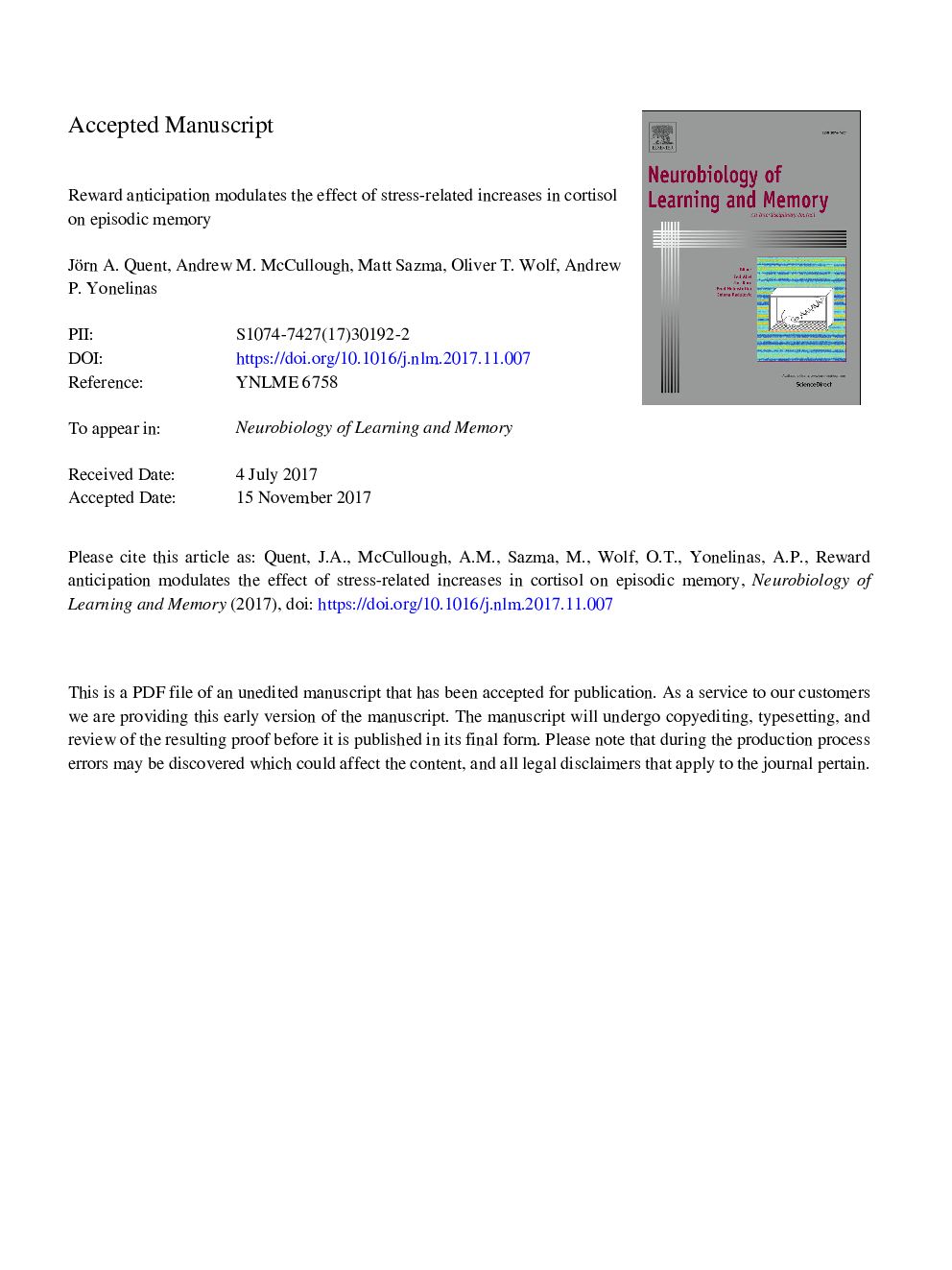| Article ID | Journal | Published Year | Pages | File Type |
|---|---|---|---|---|
| 7298926 | Neurobiology of Learning and Memory | 2018 | 24 Pages |
Abstract
When acute stress is experienced shortly after an event is encoded into memory, this can slow the forgetting of the study event, which is thought to reflect the effect of cortisol on consolidation. In addition, when events are encoded under conditions of high reward they tend to be remembered better than those encoded under non-rewarding conditions, and these effects are thought to reflect the operation of the dopaminergic reward system. Although both modulatory systems are believed to impact the medial temporal lobe regions critical for episodic memory, the manner, and even the extent, to which these two systems interact is currently unknown. To address this question in the current study, participants encoded words under reward or non-reward conditions, then one half of the participants were stressed using the social evaluation cold pressor task and the other half completed a non-stress control task. After a two-hour delay, all participants received a free recall and recognition memory test. There were no significant effects of stress or reward on overall memory performance. However, for the non-reward items, increases in stress-related cortisol in stressed participants were related to increases in recall and increases in recollection-based recognition responses. In contrast, for the reward items, increases in stress-related cortisol were not related to increases in memory performance. The results indicate that the stress and the reward systems interact in the way they impact episodic memory. The results are consistent with tag and capture models in the sense that cortisol reactivity can only affect non-reward items because plasticity-related products are already provided by reward anticipation.
Related Topics
Life Sciences
Neuroscience
Behavioral Neuroscience
Authors
Jörn A. Quent, Andrew M. McCullough, Matt Sazma, Oliver T. Wolf, Andrew P. Yonelinas,
